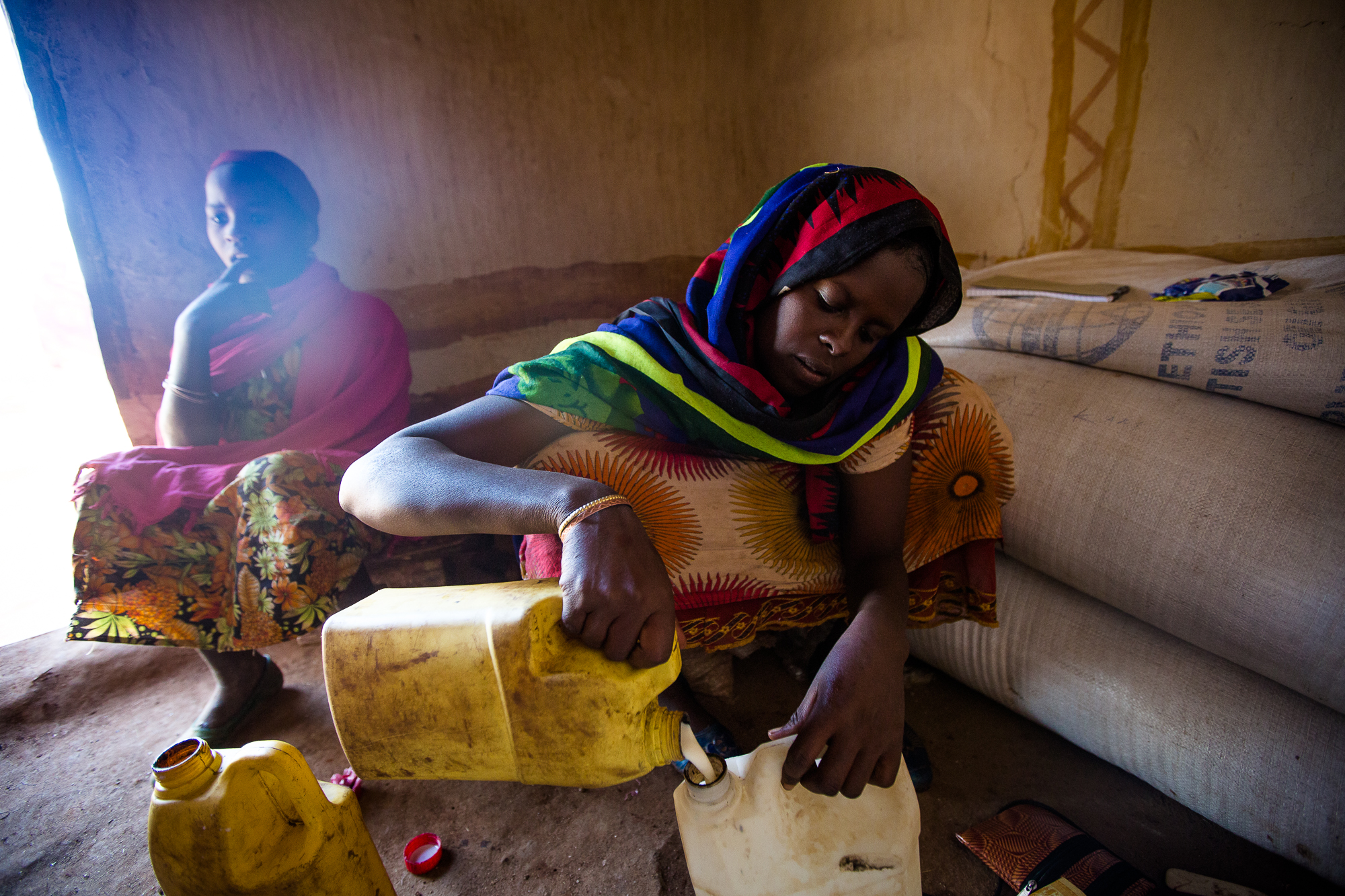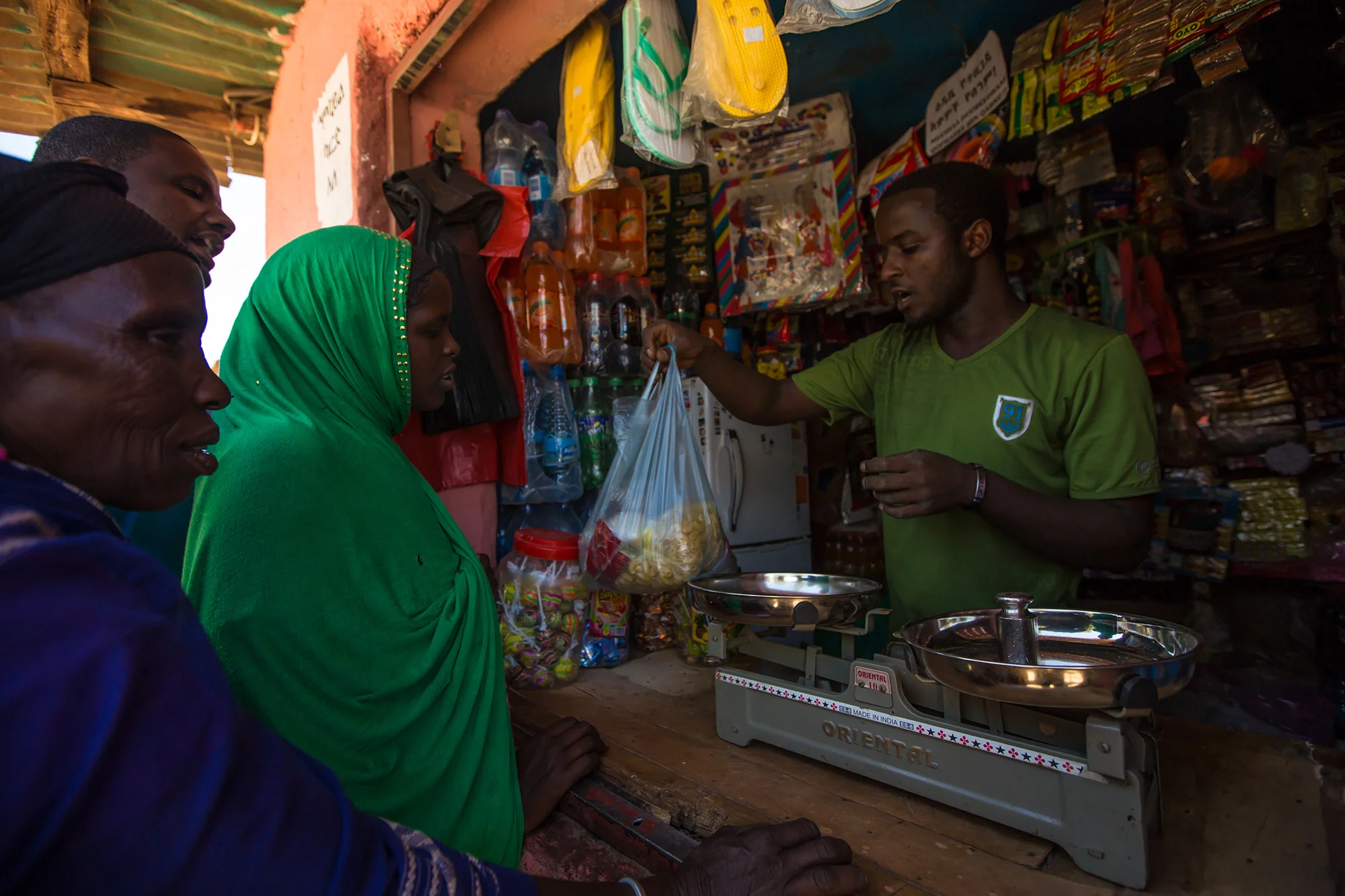Background: Dhaki Wako Baneta, 24, is one of 12 to 15 million pastoralists living in the arid drylands of Ethiopia. Drought is a constant challenge for the livelihood of her family of 4. USAID is helping families like hers mitigate, adapt to, and recover from environmental stresses by providing agricultural productivity, market expansion, and natural resource management support, tools and techniques.
This is one of a series of films produced for USAID's new online storytelling experience.
The Story: What happens when the weather is your most significant adversary? For most of the year, millions of Ethiopian pastoralists—nomadic people who move with their livestock in search of good pasture or water—worry about the skies. Often, they face extreme droughts that can last many months and kill their animals or force them to sell off their sheep, camels and cows—their primary means of long-term survival. Increasingly, in recent decades, the rainy seasons that should offer respite from the dry, dusty days are far less predictable.
Dhaki Wako Baneta lives with her husband and three children on the outskirts of the town of Negele, in southern Ethiopia. A fourth child is on the way. At daybreak, she wakes up to fetch firewood and to milk the cows. The sun is already up but the dry heat is still softened by the morning. People across the community do the same, emerging from their homes and settling into their morning routines. This is the life East African pastoralists have known for generations. But worsening droughts threaten their survival.
DHAKI’S COWS ARE AT THE CENTER OF THE FAMILY’S WELL-BEING.
The milk they produce not only nourishes the family, but also provides a healthy income in a place where economic opportunities are severely limited. But this was not always the case. In the past, Dhaki toted the family’s milk jugs more than 45 minutes down a winding mountain path each morning to the nearest road. There she sat with other women trying to make a sale. Most days she would sell nothing. When she returned home, the milk would be spoiled and the day wasted.
Dhaki’s family felt the stress of their poverty and the weight of her exhaustion when she returned in the evening to resume her housework. Under extreme circumstances, with no income coming in, the family would sell off their livestock to provide for their basic needs.
BUT NOT TODAY.
Thanks to a USAID pastoralist program, Dhaki now collects her milk and that of several neighbors and sells it, every day, to a regular buyer. Abdulkadir “Abdi” Ahmed, a milk processor in town who received a USAID grant to expand his business, tests and buys Dhaki’s product and turns it into yogurt, butter and cheese to sell in his store.
Through the arrangement, Dhaki makes an extra U.S. dollar for every jug she sells, transforming her earnings into food, care for her children and investments in new livestock. AND INTO TIME. She now returns home early enough to spend time with her children, and to complete her household chores before cooking her family’s dinner.
With more cash in hand, the family purchased new sheep and livestock feed, which they store as insurance against the next drought. Dhaki has a sense of security she never had before.“Selling to one person reduced the burden from our former workload,” she says. “My life is changing now because I am a focal person in my community.”
MILK IS ESSENTIAL TO DHAKI FOR OTHER REASONS AS WELL.
“Milk is important for children. You can tell who has grown up with milk and who has not,” she says. Now, as a businesswoman, Dhaki wants to open small shops in the village to sell sugar, oil, salt and other essentials. She plans to expand her milk trade—buying from local families and selling up the value chain—to other villages. Dhaki also wants to teach her method to others.
Where millions of people are held hostage by nature’s cruel whims, one liter at a time, pastoralist programs like these are transforming the futures of some of the planet’s most vulnerable communities.
Client: USAID
Client Website: stories.usaid.gov
Location: Negelle, Ethiopia
Music: Ryan Huff
Cinematographer: Morgana Wingard
Editor: Morgana Wingard
Awards: 2015 Silver Davey Award












